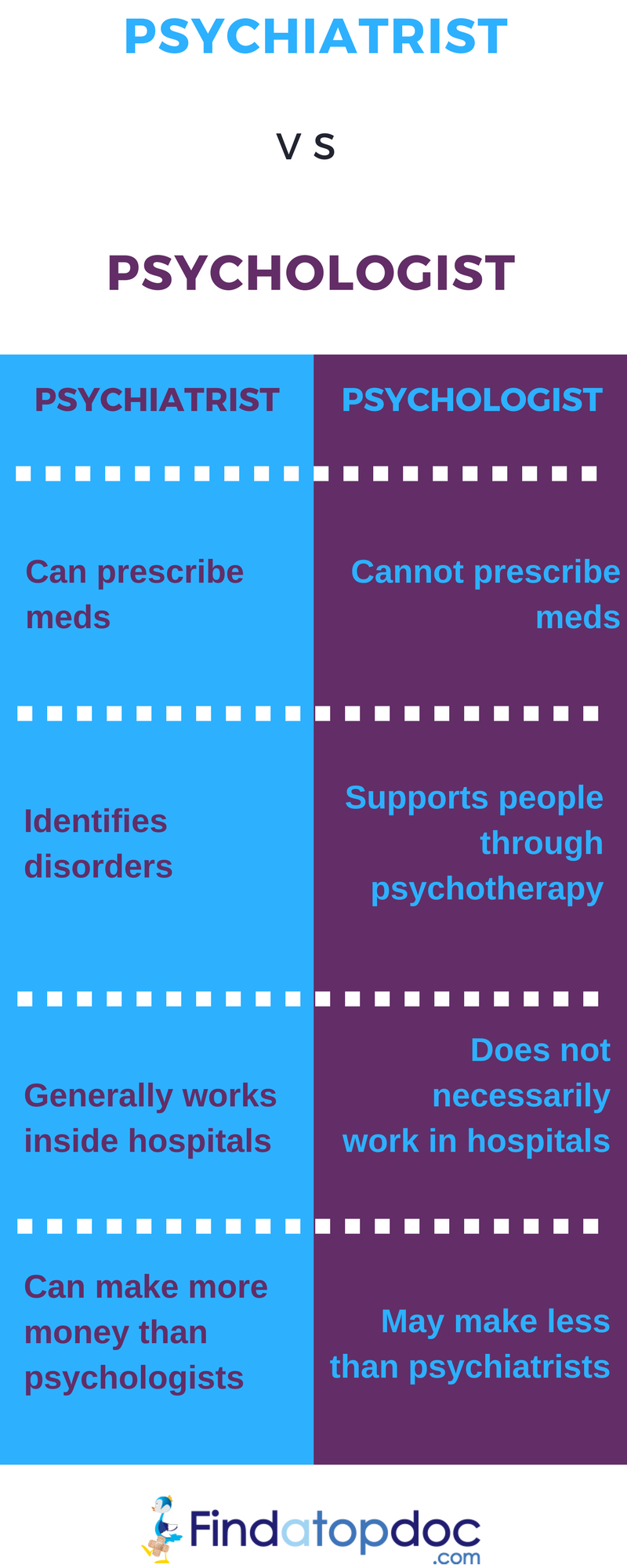
Source
The four main differences between psychiatrists and psychologists are:
- Psychiatrists are medical doctors, psychologists are not.
- Psychiatrists prescribe medication, psychologists can’t.
- Psychiatrists tend to treat complex and serious mental illness, psychologists tend to treat less serious conditions.
- You need a referral from your GP to see a psychiatrist, while you don’t for a psychologist.
How they’re Alike
Psychiatrists and psychologists are different types of doctors trained to help you deal with mental health issues. Both are there to talk you through your problems. Their goal is to provide you with the means to manage the issues in your everyday life. Although there are differences in the two fields, psychiatrists and psychologists often work together in the treatment of patients. A psychologist is not able to write prescriptions, but may recommend a patient be seen by a fellow psychiatrist in order to receive medicationsTreatments provided
Psychiatrists can provide a wide range of treatments, according to the particular problem and what will work best. These include:- medication
- general medical care, including checking your physical health and the effects of medication
- psychological treatments
- brain stimulation therapies such as electroconvulsive therapy (ECT).
- Psychologists focus on providing psychological treatments.
Conditions treated
Psychiatrists tend to treat people who need their medical, psychological and social needs considered. These are usually people with complex conditions, for example:- severe depression
- schizophrenia
- bipolar disorder.